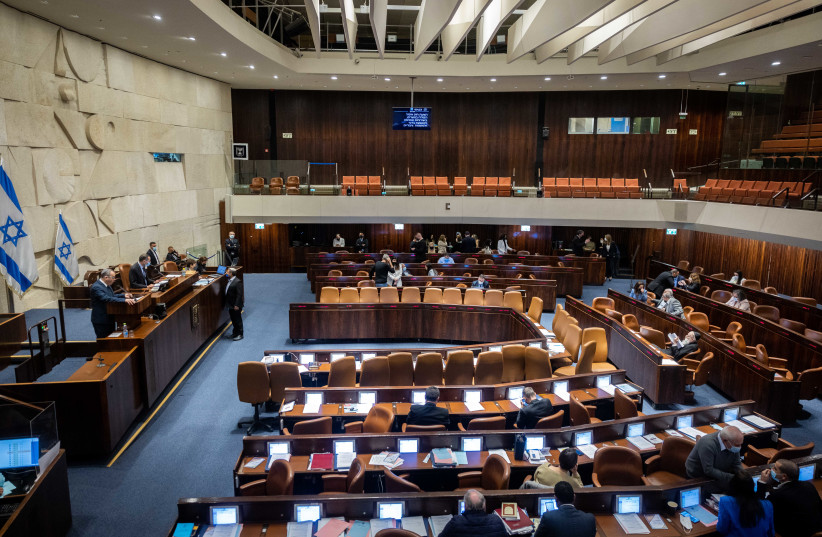United Torah Judaism chairman MK Moshe Gafni submitted a proposed bill last week to lower the electoral threshold. The legislation reportedly has the support of Foreign Minister and Yesh Atid chairman Yair Lapid.
Under the bill, the threshold – currently at 3.25% – would be lowered to around two percent, making it easier for small parties, currently straddling the threshold in polls, to pass and make it into the Knesset in the event of new elections.
Gafni’s interest in doing this is so he can threaten the other faction in UTJ – Agudat Yisrael – that if they do not fall in line with his leadership and policies, he will break away. Lapid is interested in the bill to help four parties that are currently part of the coalition and will have a hard time passing the threshold – Meretz, Labor, New Hope and Yamina – make it across the finish line.
We think this is a bad idea that will only lead to more political instability, political blackmail and, in the end, more and more elections for this country.
Just look at the current coalition, which consists of eight parties.

We have seen in recent weeks how every party can use its power to blackmail and extort to either get budgets for their constituents or to pass legislation that is important to them. What they do is in their own narrow political interests: That is what guides them and that is what they serve.
Has it worked? Not very well. The government is expected to fall sometime in the coming weeks, a natural outcome for a coalition in which every MK feels that he or she is a king or queen.
Instead of lowering the threshold, what is really needed is electoral reform that will accomplish the opposite: increase the threshold much higher than the 3.25% it is now. That would force smaller parties to merge and would force Israeli voters to choose between lists that could form governments that are likely to be more stable since they will be less vulnerable to threats of collapse from so many different players.
What is unfortunate is that all of the politicians in the Knesset know this. They know that Israel needs a higher threshold and they know that the current system is not working. Just look at the last three years during which time the country went to elections four times and now seems on the verge of a fifth.
Electoral reform was once the policy of former prime minister Benjamin Netanyahu – he ran on that promise during the 2015 election. But when he won, he did absolutely nothing to promote what he had promised on the campaign trail.
In addition to increasing the threshold, another reform often touted is the need to require the prime minister to come from the largest party. This would prevent another government having a prime minister like Naftali Bennett who is the head of what is now the smallest party in the coalition, something that automatically undermines his legitimacy and the legitimacy of his government.
Instead, no matter which parties are in the Knesset, the prime minister would come from the biggest party, thereby removing the obstacle of getting enough MKs to say they support you.
Another step would be to adopt term limits that after two terms as prime minister, the politician can no longer serve as the head of a government.
If there is anything that Israel has learned over the last three years, it is that we need to find a way to create stability and prevent elections that only return us to the same situation we were in before Israeli citizens went to the polls.
Lowering the threshold might help advance personal political agendas and interests, but it is not what the country needs. We need stability – not more small parties that will carry more weight and influence than they truly deserve.
After four elections in three years and another one expected soon, we need to find ways to avoid more of them. That’s why politicians need to raise the threshold, not lower it.
